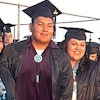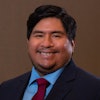In the aftermath of a highly publicized and bitter vote that removed 2,700 Blacks known as Freedmen from the tribal rolls of the Cherokee Nation of Oklahoma, scholars are weighing in about a question that is as old as this country — What does it mean to be an American Indian?
Last week, Cherokee members voted to remove a unique class of its citizens from the tribal rolls — the descendants of African slaves once kept by tribal members, also known as Freedmen. Freedmen were granted citizenship as part of an 1866 treaty between the federal government and the Cherokee nation. The freed slaves that stayed with the tribe adopted the language and culture. Some intermarried into the tribe, and many were forced on the deadly Trail of Tears march from Georgia to Oklahoma, which killed nearly one-fifth of the tribe. Historically one of the wealthiest tribes, some Cherokee members held more than 100 slaves on plantations in the South, according to a recent report on National Public Radio.
But in the mid-1970s, after decades of oppressive rule by the Bureau of Indian Affairs, the Cherokee re-organized as a tribal nation — choosing their own leaders and allowing citizens the right to vote. Under a new constitution, members first voted to oust intermarried Whites, then the Freedmen on the basis that they had no blood connection to the tribe.
After enduring almost 30 years of banishment, the Cherokee high court ruled that the Freedmen could re-enroll. But a petition drive led to a constitutional amendment that some say narrowly required citizenship to be defined purely by blood. More importantly, the petition took the determining of rightful enrollment out of the hands of the court and gave it to the people to decide. Many have expressed concern that the decision to remove the Freedmen was not based on a thorough understanding of the tribe’s political and legal history, but motivated by racism and a perception that Freedmen simply want access to membership benefits such as health care.
“It’s like the O.J. Simpson trial. Once the debate became about race nobody got a fair hearing,” says Dr. Daniel F. Littlefield Jr., director of the Sequoyah Research Center at the University of Arkansas-Little Rock. “This decision should have been based on the 1866 Treaty in which the Freedmen were granted citizenship, not race.”
Littlefield, who has gathered a history of the Cherokee Freedmen in a book, says the Cherokee are dismissing an important tribal value — the culture of inclusion. In fact, the Cherokee have been one of the few tribes that have adopted other American Indians into their ranks. According to Littlefield, defining what it means to be Cherokee has meant both blood and culture. But when the tribe re-organized in 1976, they allowed White attitudes of racism into their “rethinking” about who is a Cherokee.
“Acculturation conditions people to think in certain ways,” Littlefield says. “The Indians of Oklahoma were almost forced to do that.”
Dr. Garrick A. Bailey, an anthropologist at the University of Tulsa who is Choctaw and Cherokee, agrees with Littlefield on the historical treatment of the tribes in Oklahoma.
“The Five Civilized Tribes have a totally unique social and cultural history that sharply distinguishes them from other tribes in the United States because of the conditions in which the tribes evolved — forced removal,” Bailey says. But he is quick to point out that racism is not at the heart of the controversy.
“I believe it’s about pride on both sides. The Freedmen are very proud of their Cherokee heritage and so are the other members,” he says. “It’s important to point out that there were a lot of traditional Cherokee who supported the Freedmen.”
Bailey argues that given the long history of Cherokee citizenry based on culture adoption and blood, it is difficult to separate culture from biology these days.
“I’ve known Black Creek who spoke Creek and blonde, blue-eyed people who spoke Choctaw.”
Carole E. Goldberg, a law professor at the University of California at Los Angeles who specializes in the study of tribal sovereignty and federal-Indian policy, says while amendments can be good for tribal nations instead of voting out tribal court judges, caution must be considered when it comes to relying on referendums to determine critical issues, such as defining tribal identity.
“In California, state initiative measures have sometimes helped break political deadlocks and register strongly held voter sentiment, as in the case of the tribal gaming initiatives,” she says. “But they also open up the possibility of law being made on the basis of misinformation, public relations campaigns and heavy financial investments by narrow interests. In conducting its own referenda and initiatives, Indian country could benefit from studying this experience at the state level.”
Littlefield says the results of the Cherokee referendum could end up costing the tribes federal funding. “They’ve started down a slippery slope like the Seminoles did when they removed Freedmen from their rolls,” he says. In 2000, the Seminoles re-admitted the Freedmen back when the federal government cut off funding. The same could happen to the Cherokee if the U.S. government determines the tribe violated the 1866 Treaty.
–Mark Anthony Rolo
There are currently 8 comments on this story.
Click here to post a comment.
© Copyright 2005 by DiverseEducation.com





















